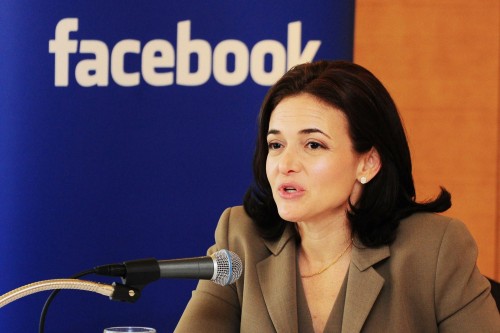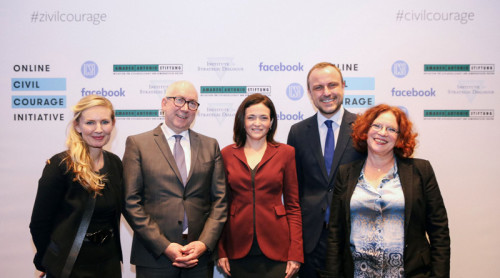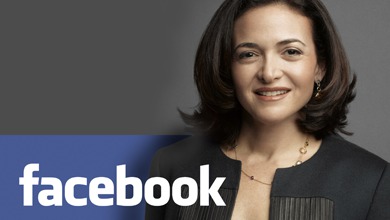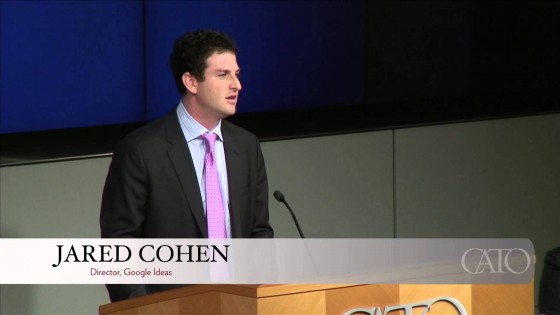Facebook Gets Involved in Asking Users to Snitch on One Another.
NYADagbladet, ‘Facebook gets involved in asking users to report on what has heretofore been free opinion,’ 21 Jan 2016:
Illegal speech has always been forbidden on Facebook. And there are also opinions which are classified as “hatred and intolerance.” Now Facebook is taking a hard line against dissent by building a system wherein you can report friends whose opinions are dissident of their party line regarding migrants and their assimilation.

Facebook’s COO, Sheryl Sandberg, yesterday presented its new strategy at the World Economic Forum in Davos. This week it has launched a new project which is called the Initiative for Civil Courage online.
“Civil Courage”

From left, Sasha Havlicek, Gerd Billen, Sheryl Sandberg, Peter Neumann, Anetta Kahane at the launch of the initiative at the World Economic Forum
There is much talk about stopping the IS and terrorism in the social media. But behind the new venture hides also other motives. It is mainly in response to protests flaring-up in social media against the great migration and refugee flows into Europe that the company now intends to take action. The initiative will particularly target Germany, where the protests were at their strongest according to Reuters.
- ‘Hate speech has no place in our society - not even on the Internet, said Sandberg of the new venture.’
Merkel and the German government are a significant party in pushing Facebook to apprehend “hatred and calls for violence.”
Clear illegality has always been forbidden to write and Facebook’s employees censure that sort of continent as soon as it is discovered. However, the company will now focus on detecting users who make “xenophobic remarks,” according to Britain’s “Independent.” It has now engaged media company Bertelsmann to clean up and monitor traffic on the German part of the platform. The company has also set aside a million euro to be allocated to “nonprofit organizations” to help in the effort.
Opinion based reporting
But the really big operation is not launched yet. Facebook will have an opinion reporting system that allows users to alert the company when friends’ opinions start to diverge too much. Then you should be able to flag that they are ‘at risk of being radicalized, “according to IDG.
It is still unclear what the definition of too radical will be, whose posts will be deleted and if it should be decided by a robot or by human judgment.
Markus Andersson
.(JavaScript must be enabled to view this email address)
Here by contrast is Gaurdian coverage:
Guardian, ‘Facebook’s Sheryl Sandberg: ‘likes’ can help stop Isis recruiters,’ 20 Jan 2016:

Speaking at Davos, Facebook’s COO said the company believes ‘counterspeech’ by the online community is the best way to combat propaganda
Silicon Valley is now an open combatant in the war against Islamic extremism.
In increasingly brash tones, tech executives are discussing publicly how their companies can help the west stop Islamic State recruiting efforts online. That shift is welcome news in Washington, London and Berlin, but it could also raise questions about American tech firms’ role in the global marketplace of ideas.
Less than two weeks ago, Silicon Valley’s leading executives joined a closed-door meeting with America’s most senior security staff and law enforcement officials to discuss how to combat Isis’s recruiting efforts online. Agents for the terrorist organization have increasingly turned to platforms such as Facebook,
Alphabet’s YouTube and Twitter.
Speaking at the World Economic Forum in Davos on 20 January, Facebook’s COO Sheryl Sandberg pointed to one source of inspiration for the digital war against Isis – “a ‘like’ attack”.
She explained a recent effort by German Facebook users to “like” the Facebook page of the neo-Nazi party and then post positive messages on the page.
“What was a page filled with hatred and intolerance was then tolerance and messages of hope,” she said.
Google says Isis must be locked out of the open web.
She then pivoted to Isis and added: “The best thing to speak against recruitment by Isis are the voices of people who were recruited by Isis, understand what the true experience is, have escaped and have come back to tell the truth ... Counter-speech to the speech that is perpetuating hate we think by far is the best answer.”

Speaking separately in London on the same day, Alphabet’s director of Google Ideas, Jared Cohen, talked about efforts to force Isis agents off the public internet.


“It could be where we can see greater short-term wins,” said Cohen, who met with Pope Francis on 15 January along with Alphabet executive chairman Eric Schmidt.
Revealed: White House seeks to enlist Silicon Valley to ‘disrupt radicalization’
US officials, lawmakers and politicians have complained that the companies aren’t doing enough to keep terrorists away from civilians online. Donald Trump famously said last month he wanted to talk to Microsoft founder Bill Gates about “closing the internet up” in some places to stop Isis.
And while tech executives privately were sympathetic, they were often nervous about confronting the issue publicly. The internet, by its nature, is open. Tech firms – rooted in America’s liberal tradition of free speech – are skittish about playing traffic cop about posted content. Sandberg’s and Cohen’s remarks Wednesday suggest those concerns have diminished.
During the national security meeting in San Jose, Silicon Valley executives in the room, including Sandberg and Apple’s Tim Cook, appeared open to the idea of helping Washington combat Isis online.
The Guardian reported at the time that US officials asked Sandberg about Facebook’s technology that allows users to flag friends who are posting suicidal thoughts on the platform.
After Sandberg explained it, tech executives in the room discussed whether a similar system could be developed for flagging social media users showing signs of radicalization.

Posted by Sheryl Faceberg on Sat, 23 Jan 2016 12:32 | #
Sherly Faceberg ..er, Sandberg, the face of Faceberg… er, Facebook.
Yo sista’, tell it, tell it.